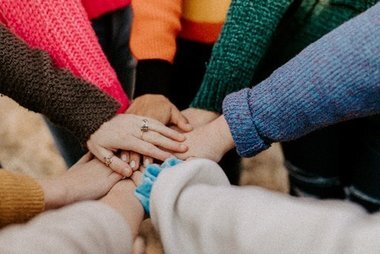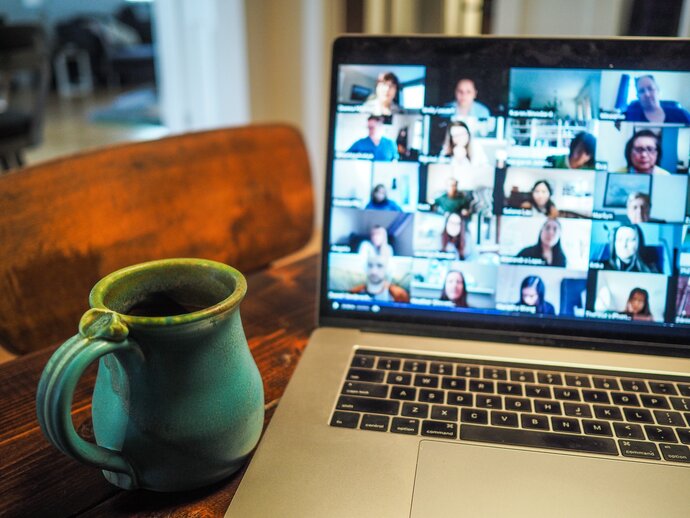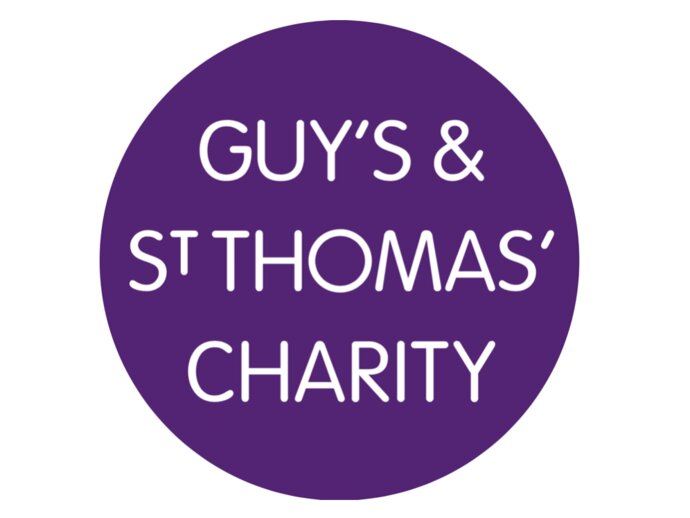"I knew at that moment I wasn’t alone" – New support for people with LTCs

A collaborative research project has developed a peer support platform to help those with long-term conditions. Here, members of the research project provided an overview of the project and their reflections. This article was written by Hannah Rowlands, Elly Aylwin-Foster, Grace Lavelle and The Peer Support Platform Team.
Living with a long-term condition (LTC) can affect our mental health as much as our physical health. As part of a research project at King’s College London (KCL) and an ‘Integrating Mental & Physical healthcare: Research, Training & Services’ (IMPARTS) initiative, we are creating an online community to help people with health difficulties connect and find social and emotional support. This work has been funded by King’s Health Partners and Impact on Urban Health, through their Multiple Long-Term Conditions Challenge Fund.
We think that better access to online peer support could help people with multiple long-term conditions live happier, healthier lives. While there are already various internet support groups for people with specific physical health conditions and for people with mental health conditions, our online peer support platform has a slightly different approach. Our aim is to create a community that brings both physical and mental health together to support the whole person, mind and body. From our earlier consultations with people with lived experiences, we know that some people with health conditions liked the idea of coming together to share experiences with people living with many different conditions. This is at the heart of the initiative we are developing.
We are proud to be working as a large team that includes research advisory group members, a patient and public participatory design panel, an external design agency called TOAD, KCL researchers and academics, KCL clinicians, and a co-investigator with lived experience. We have gathered reflections from some of the team members on their experiences of the process so far, found throughout this blog piece.
Throughout the project so far, we have followed a process called ‘Intervention Mapping’, using a co-production approach. Intervention Mapping is a planning framework for intervention development and implementation that is grounded in community-based participatory research methods. We have conducted focus groups to understand what people with LTCs think about online peer support. We took part in workshops to co-produce the platform prototype. Finally, we carried out usability testing to improve the look and feel of the platform protype.
I found involvement in the project helped me to reflect and contribute in a way that resonated with others moving in a similar direction and seeking solutions to improve their health and wellbeing by considering opportunities to create change. So for me it was a valuable experience and I would be happy to be involved in any future developments to enable a much needed project to grow and flourish.
- Andrew, Design Panel Member
This project has given me the chance to express myself and my thoughts. It was very therapeutic in one sense as I had the chance to dig deeper into my experiences and explore other people’s experiences too. Knowing that there was freedom of expression without judgment or stigma was very enlightening and as a team I knew at that moment that I wasn’t alone. The team was friendly and acknowledged the difference in opinions whilst having a main focus. It was great to be able to tap into our thought process and have the chance to feedback any further thoughts following each session. It felt inspirational knowing that the outcome of this project will not only make a difference to someone else’s life but also to mine. Everyone was respectful and it’s great that we highlighted various aspects that will influence mental and physical health and the most rewarding moment was talking about cultural differences and mental/physical health as I think that is has a deeper impact into what some of society think of as normal. The common ground to all this was that we all have that ’Safe Zone‘ to access that will eventually make a big difference to our health and well-being.
- Stacian, Design Panel Member
Next, we are pleased to announce that we have recently secured funding to take our work to the next stage, following the awarding of a subsequent grant from King’s Health Partners Impact on Urban Health’s Multiple Long Term Conditions Challenge Fund. This will allow us to realise the vision of the platform and continue to develop and enhance the project for another two years. We plan to test the platform among users with long term-conditions, who are experiencing subthreshold depression (just falling below the threshold of depression) to explore the feasibility of running a larger trial in the future.
We learned a lot from our online course “Integrating Care: Depression Anxiety and Physical Illness” that many people with long term conditions really valued being able to discuss their experiences with others, and we thought there was a role for online peer-support. Developing this platform has involved teamwork with a very diverse group – we don’t know yet how it will be experienced by end users, but we have high hopes it will fill an important gap.
- Matthew, Principal Investigator, Design Panel Member
Being part of this project has been very special for TOAD. It's a great example of how you can facilitate co-production in safe and supportive ways during a pandemic. The advantage gained from the mutual interest in the subject matter and the breakdown in traditional hierarchies cannot be overstated, given the wellbeing that this created. The breakdown of barriers fosters a learning culture that allows honest and open conversation, which leads to a deeper understanding of the problem and impact. The trust built up during the journey created an amazing foundation for solving the problem together.
- Henry, TOAD Design Agency, Design Panel Member
The project has come a long way and we would like to thank all those that are members of the team for their involvement and continued support. We are looking forward to developing the online platform further so that those with long term conditions can better access psychosocial support to live happier and healthier lives. Our co-produced approach is hugely important to us and integral to this work.
For me as a researcher, working alongside people with lived experiences to develop meaningful and tractable solutions to improve healthcare is paramount. Throughout this co-production, I have been struck by the power of the collective, “remote” voice of colleagues, research participants and expert advisory panels of people with lived experiences, coming together to support one another achieve our end goal. Co-development of health services for users by users should be at the heart of building better care. I believe that this project emulates this perfect storm. I am really excited to help take our work to its next stage, to hopefully improve the lives of people with long-term conditions, which is at the core of our vision.
- Grace, Research Fellow, Design Panel Member
To find out more about our online peer support platform, CommonGround, and the next stages of our research, please visit our main webpage. If you are living with a long-term condition and are interested in getting involved in our research, please click here: https://bit.ly/commongroundresearch. If you want to talk to the research team, please email us at commonground [at] kcl [dot] ac [dot] uk.

